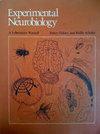Invertebrate Model Organisms as a Platform to Investigate Rare Human Neurological Diseases
IF 1.8
4区 医学
Q3 MEDICINE, RESEARCH & EXPERIMENTAL
引用次数: 1
Abstract
Patients suffering from rare human diseases often go through a painful journey for finding a definite molecular diagnosis prerequisite of appropriate cures. With a novel variant isolated from a single patient, determination of its pathogenicity to end such “diagnostic odyssey” requires multi-step processes involving experts in diverse areas of interest, including clinicians, bioinformaticians and research scientists. Recent efforts in building large-scale genomic databases and in silico prediction platforms have facilitated identification of potentially pathogenic variants causative of rare human diseases of a Mendelian basis. However, the functional significance of individual variants remains elusive in many cases, thus requiring incorporation of versatile and rapid model organism (MO)-based platforms for functional analyses. In this review, the current scope of rare disease research is briefly discussed. In addition, an overview of invertebrate MOs for their key features relevant to rare neurological diseases is provided, with the characteristics of two representative invertebrate MOs, Drosophila melanogaster and Caenorhabditis elegans, as well as the challenges against them. Finally, recently developed research networks integrating these MOs in collaborative research are portraited with an array of bioinformatical analyses embedded. A comprehensive survey of MO-based research activities provided in this review will help us to design a well-structured analysis of candidate genes or potentially pathogenic variants for their roles in rare neurological diseases in future.无脊椎动物模型生物作为研究罕见人类神经系统疾病的平台
患有罕见人类疾病的患者往往要经历一段痛苦的旅程,才能找到确切的分子诊断,找到合适的治疗方法。从一名患者身上分离出一种新的变体,要确定其致病性以结束这种“诊断之旅”,需要多步骤的过程,涉及不同领域的专家,包括临床医生、生物信息学家和研究科学家。最近在建立大规模基因组数据库和计算机预测平台方面的努力,促进了在孟德尔基础上识别导致罕见人类疾病的潜在致病性变体。然而,在许多情况下,单个变体的功能意义仍然难以捉摸,因此需要结合多功能和快速的基于模式生物(MO)的平台进行功能分析。在这篇综述中,简要讨论了目前罕见病的研究范围。此外,还概述了无脊椎动物MOs与罕见神经疾病相关的关键特征,以及两种具有代表性的无脊椎动物MOs,黑腹果蝇和秀丽隐杆线虫的特征,以及它们面临的挑战。最后,最近开发的将这些MO整合到合作研究中的研究网络,嵌入了一系列生物信息学分析。本综述中提供的对基于MO的研究活动的全面调查将有助于我们设计一个结构良好的候选基因或潜在致病性变体的分析,以了解它们在未来罕见神经疾病中的作用。
本文章由计算机程序翻译,如有差异,请以英文原文为准。
求助全文
约1分钟内获得全文
求助全文
来源期刊

Experimental Neurobiology
Neuroscience-Cellular and Molecular Neuroscience
CiteScore
4.30
自引率
4.20%
发文量
29
期刊介绍:
Experimental Neurobiology is an international forum for interdisciplinary investigations of the nervous system. The journal aims to publish papers that present novel observations in all fields of neuroscience, encompassing cellular & molecular neuroscience, development/differentiation/plasticity, neurobiology of disease, systems/cognitive/behavioral neuroscience, drug development & industrial application, brain-machine interface, methodologies/tools, and clinical neuroscience. It should be of interest to a broad scientific audience working on the biochemical, molecular biological, cell biological, pharmacological, physiological, psychophysical, clinical, anatomical, cognitive, and biotechnological aspects of neuroscience. The journal publishes both original research articles and review articles. Experimental Neurobiology is an open access, peer-reviewed online journal. The journal is published jointly by The Korean Society for Brain and Neural Sciences & The Korean Society for Neurodegenerative Disease.
 求助内容:
求助内容: 应助结果提醒方式:
应助结果提醒方式:


